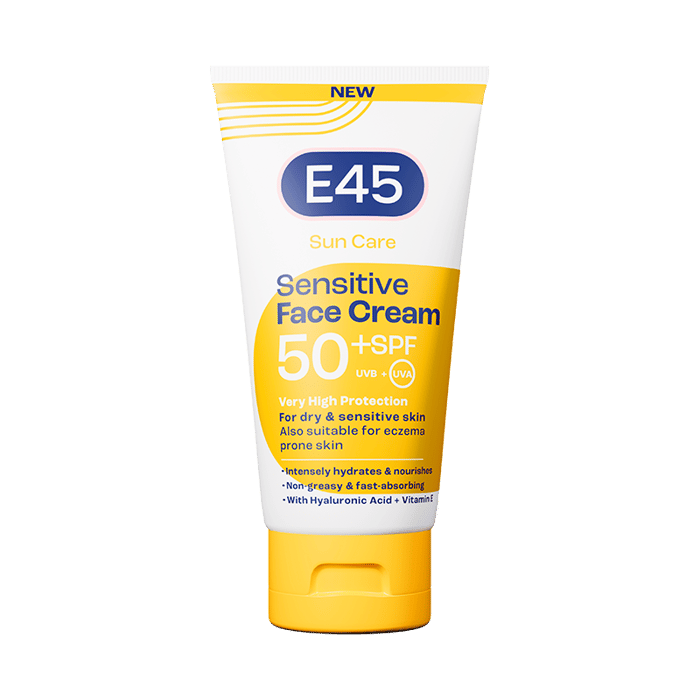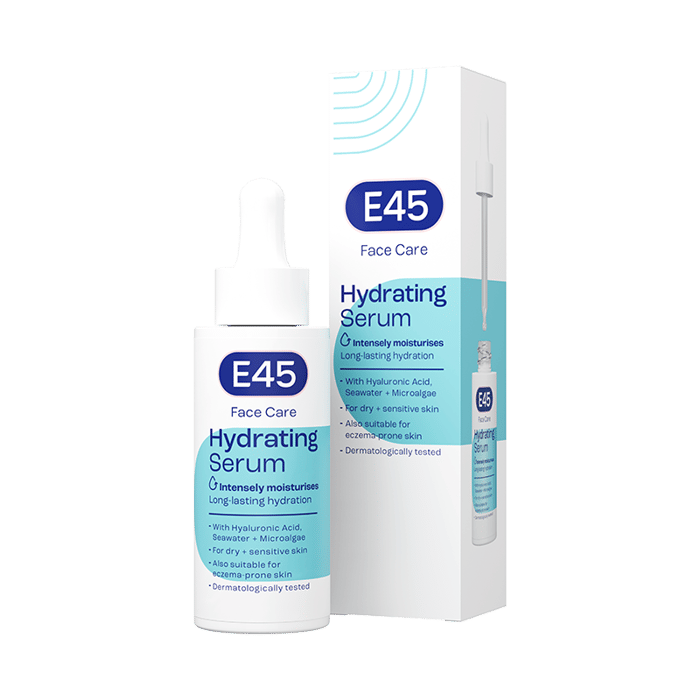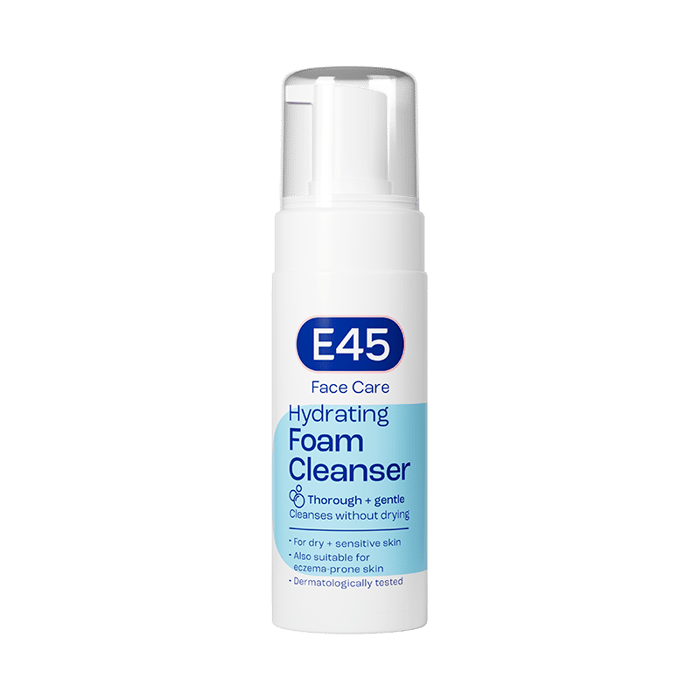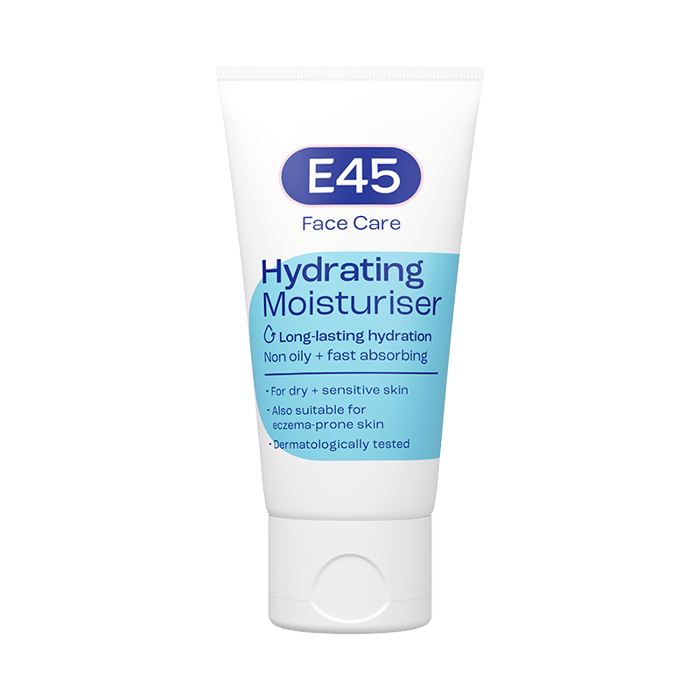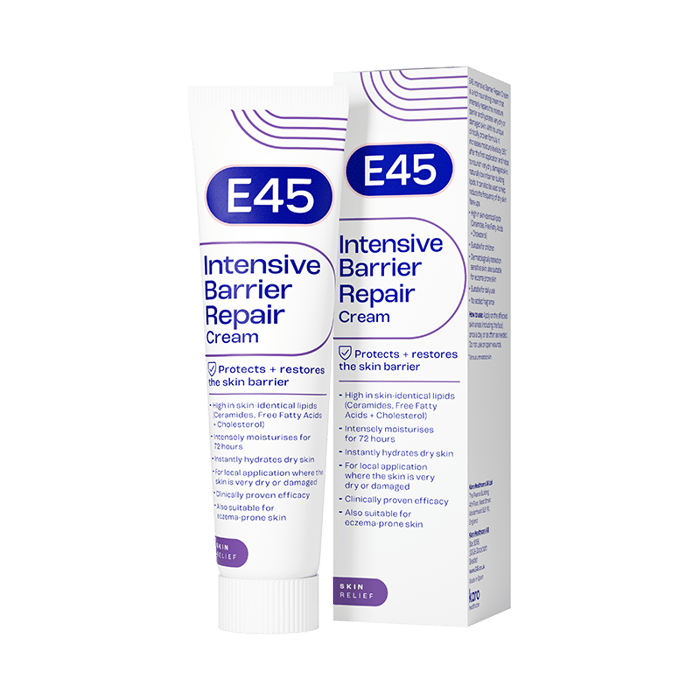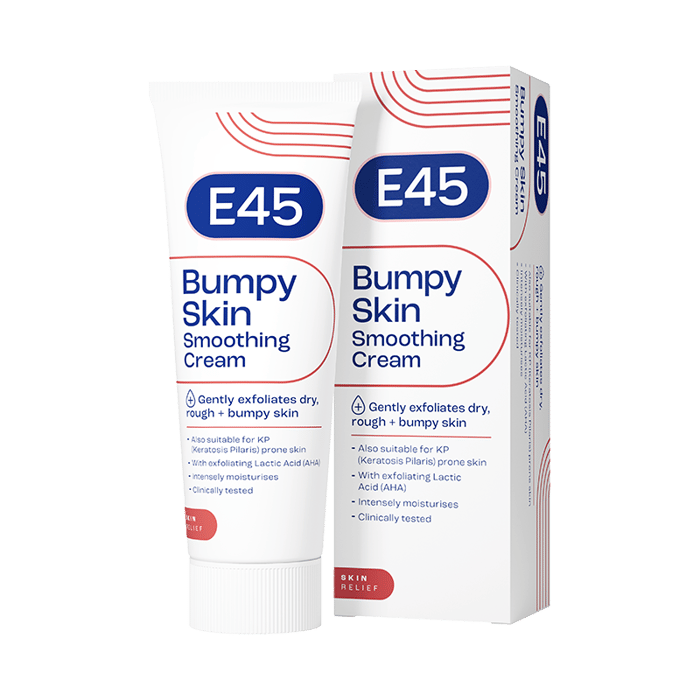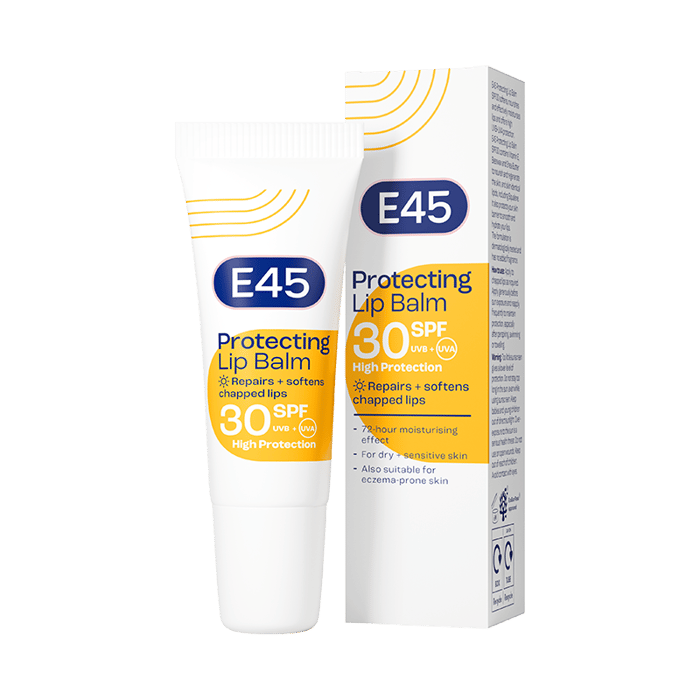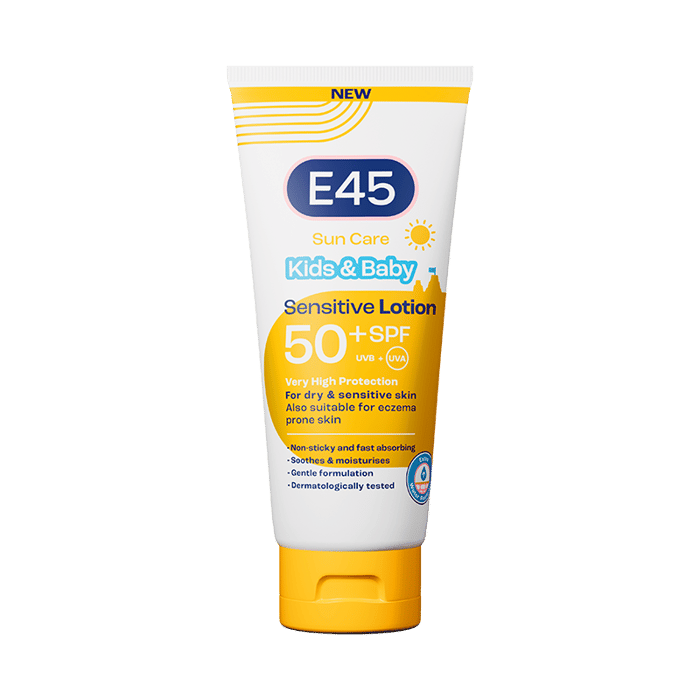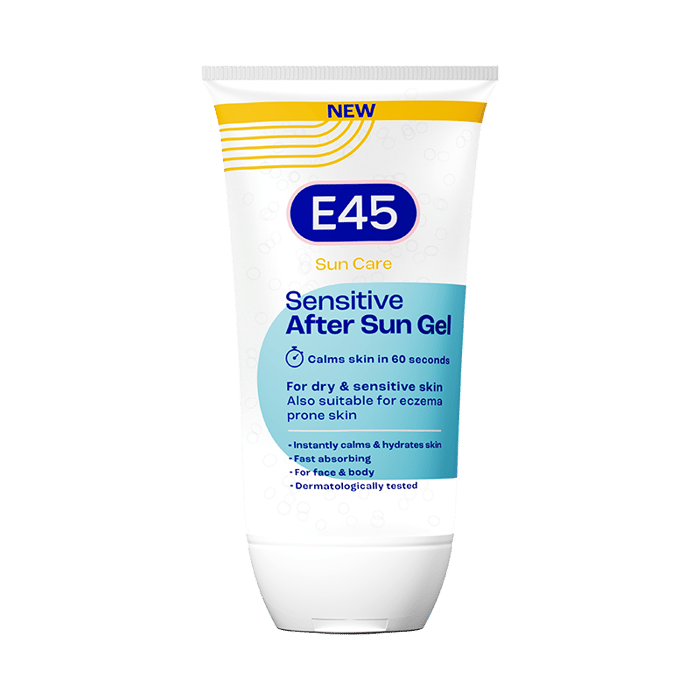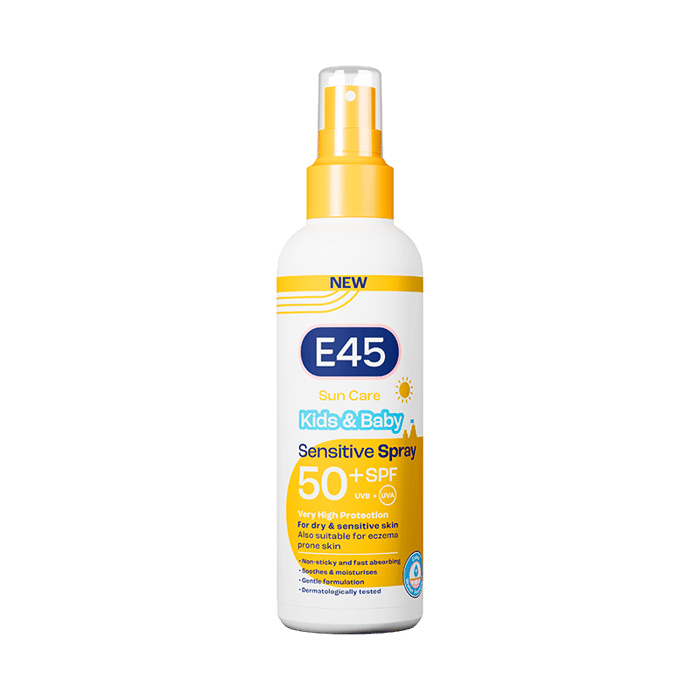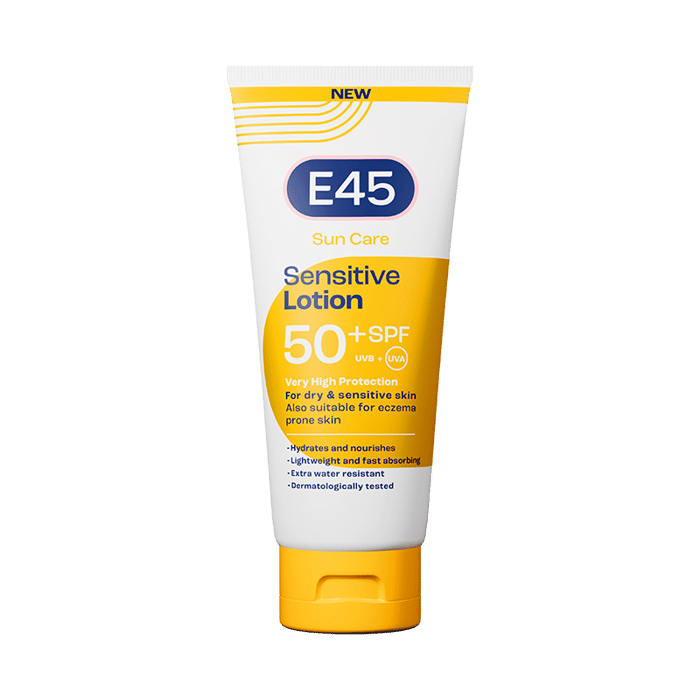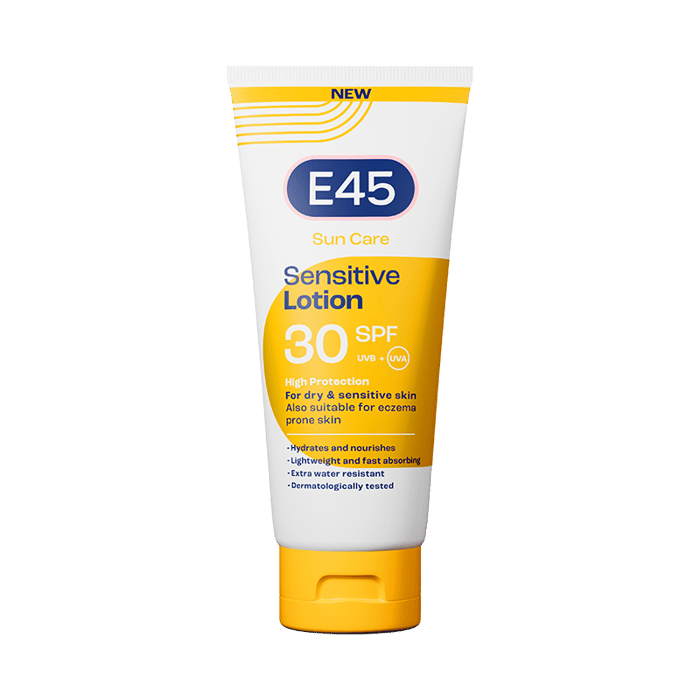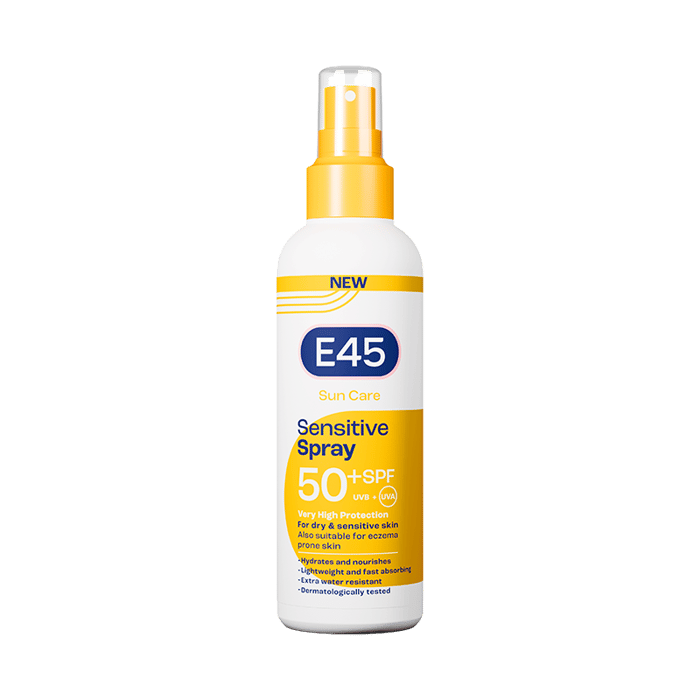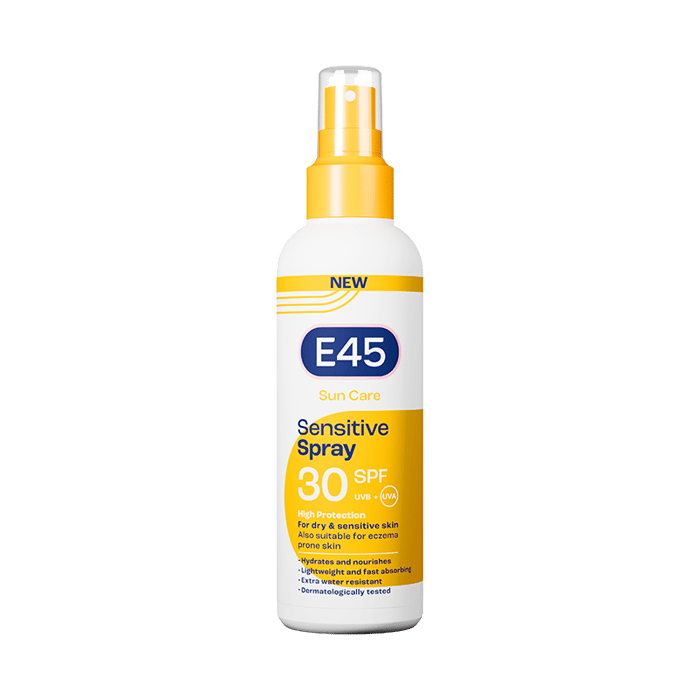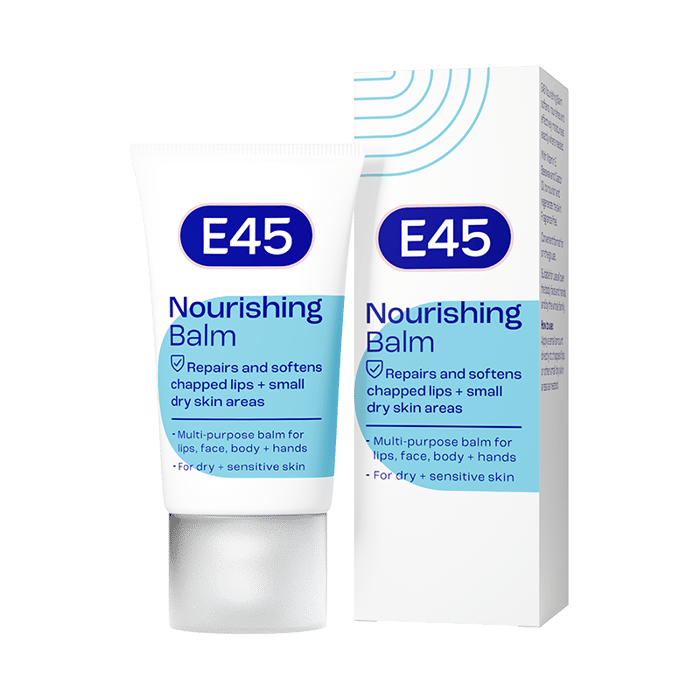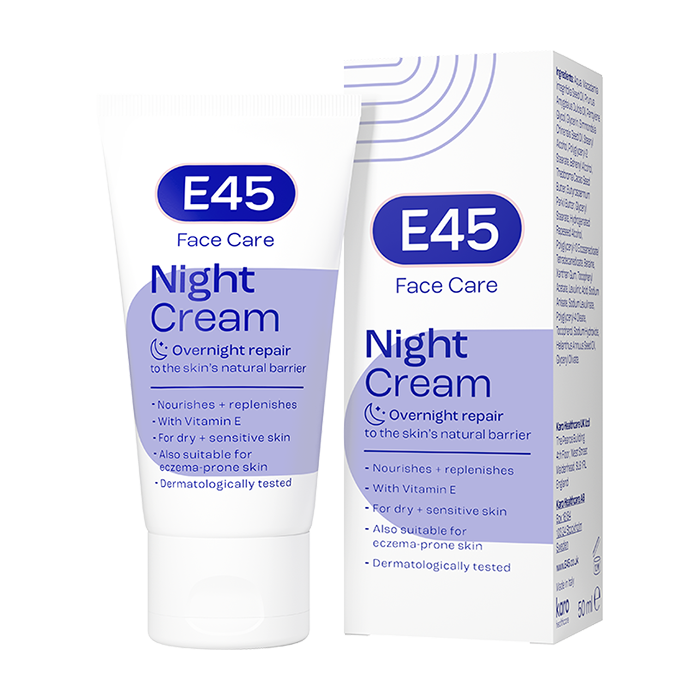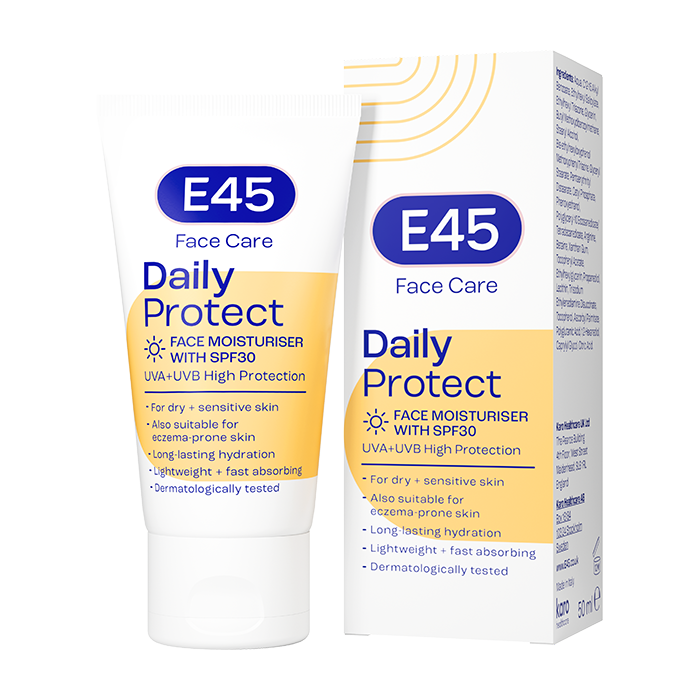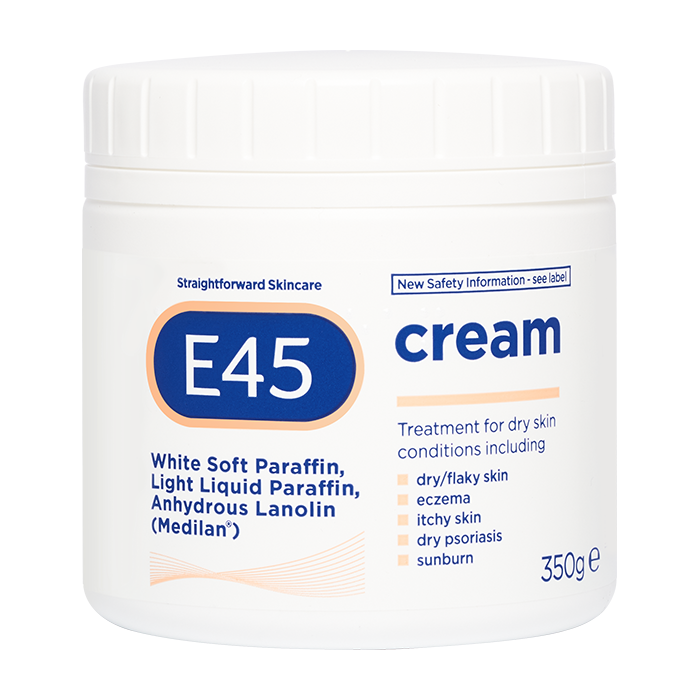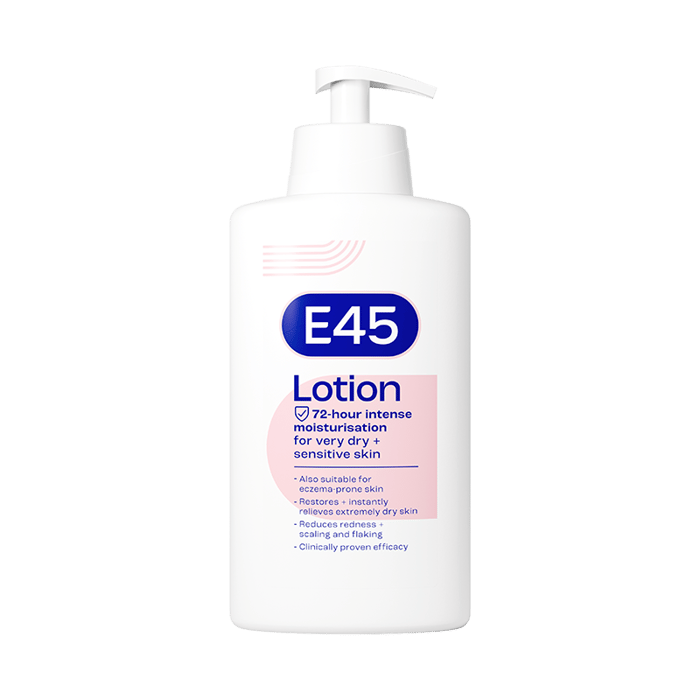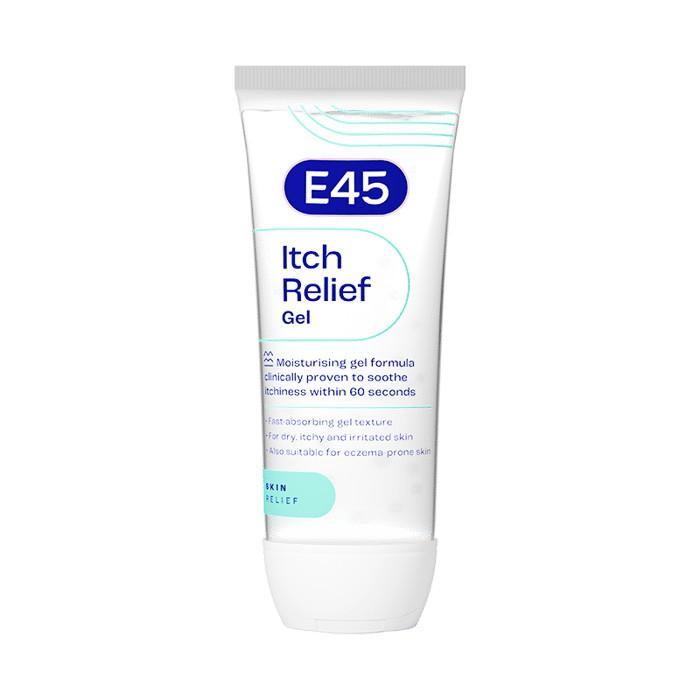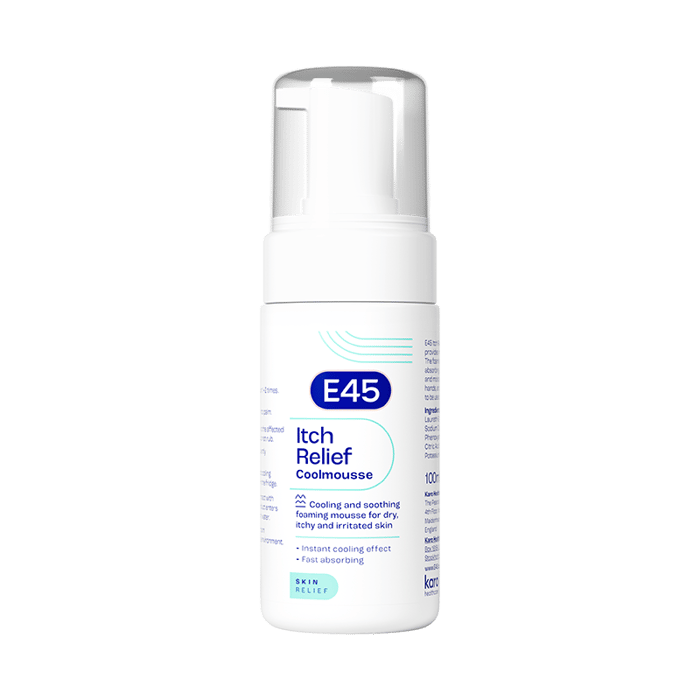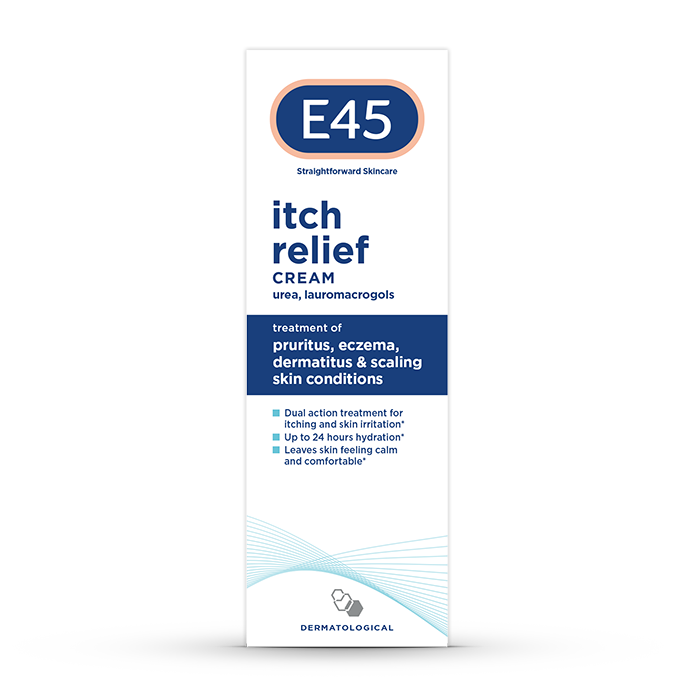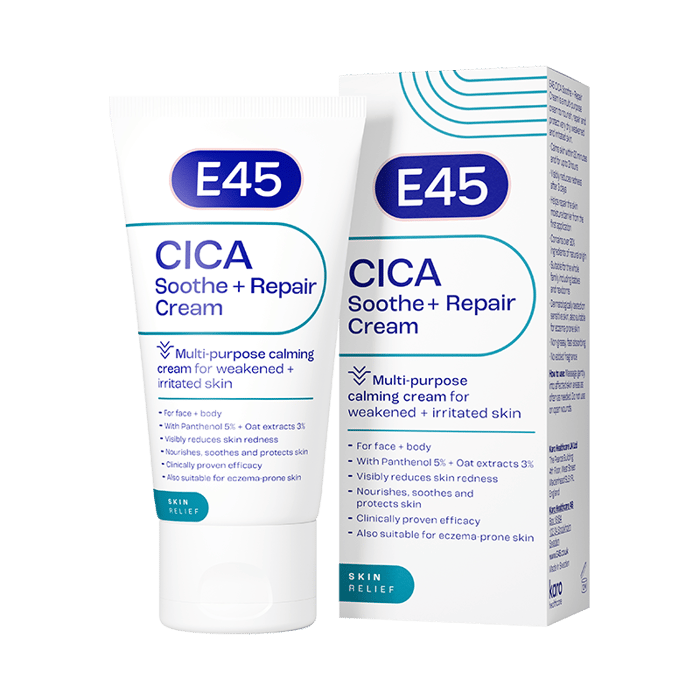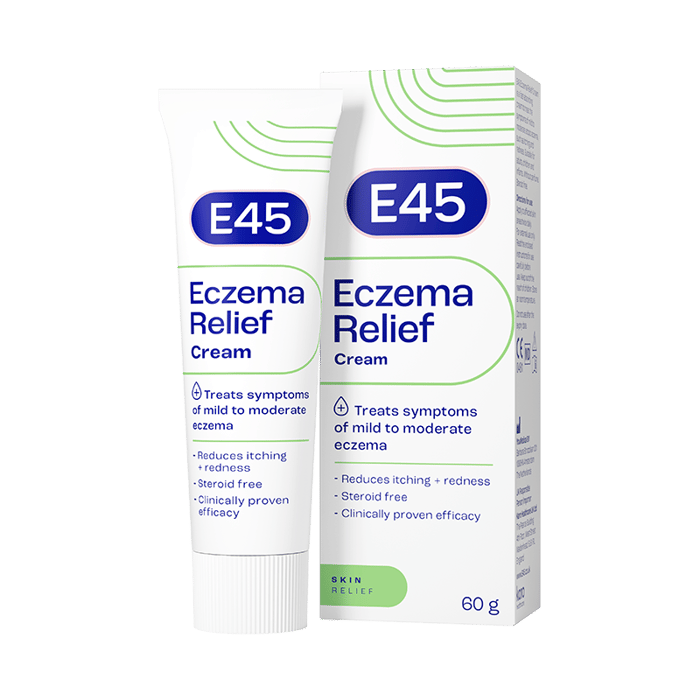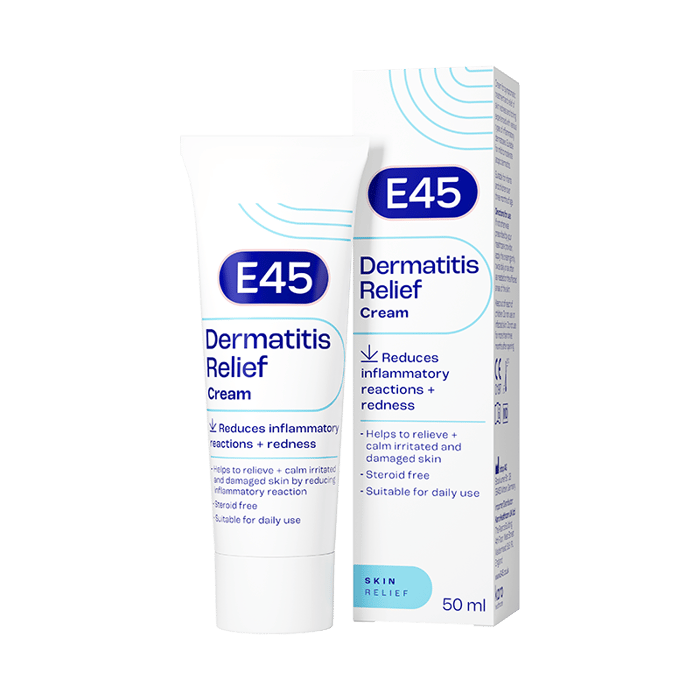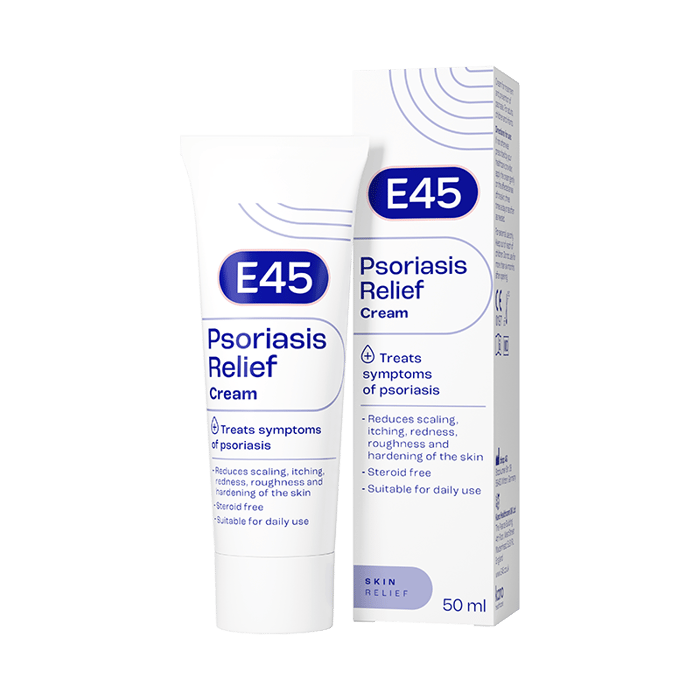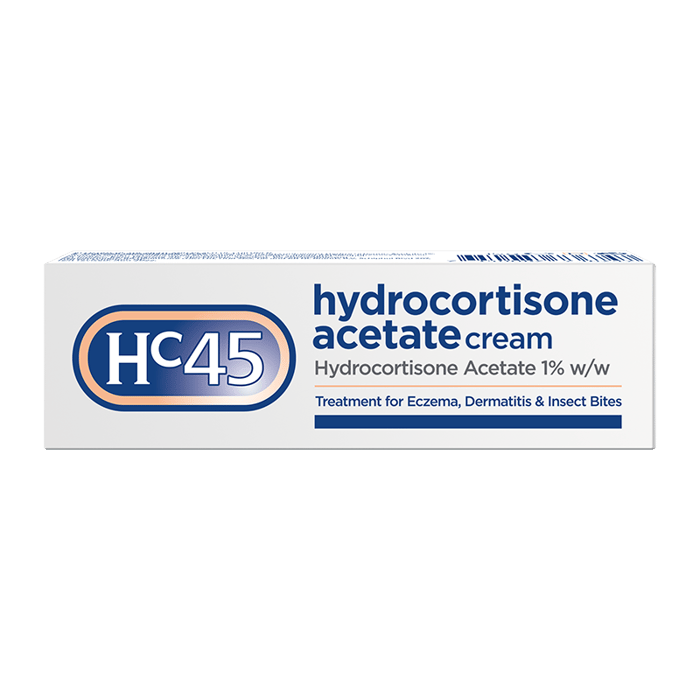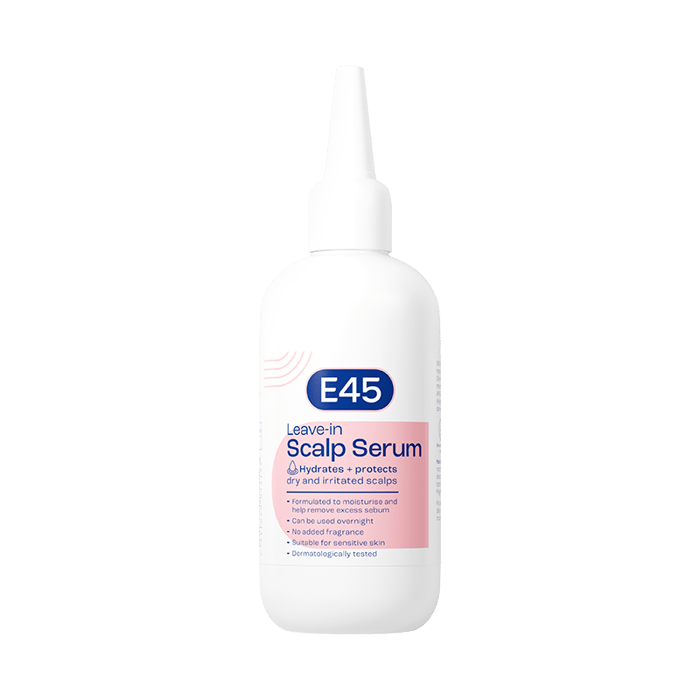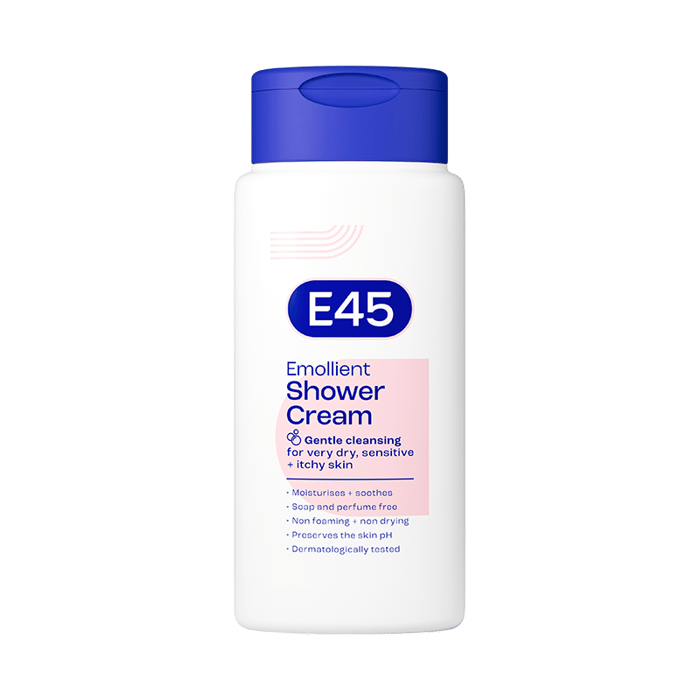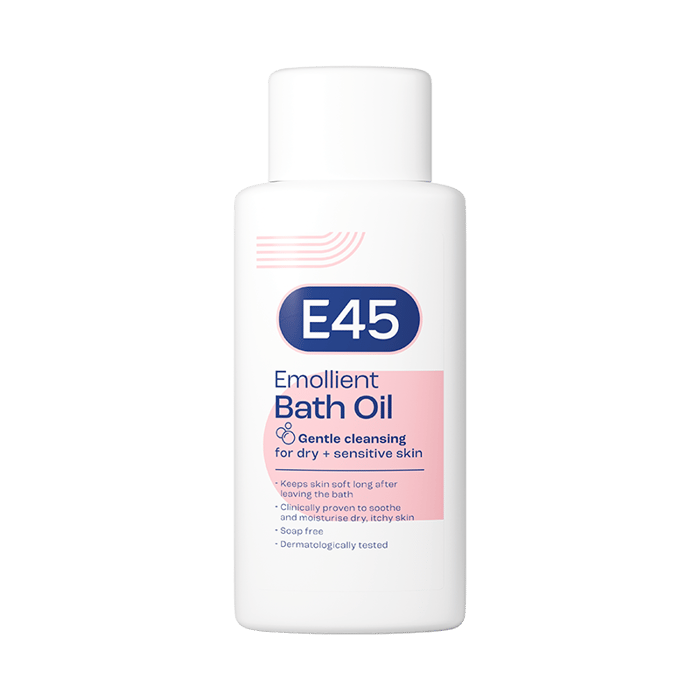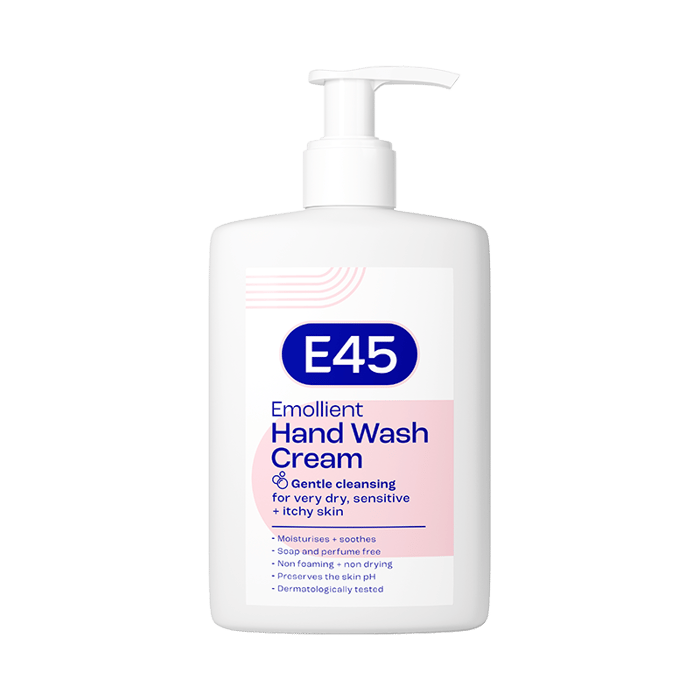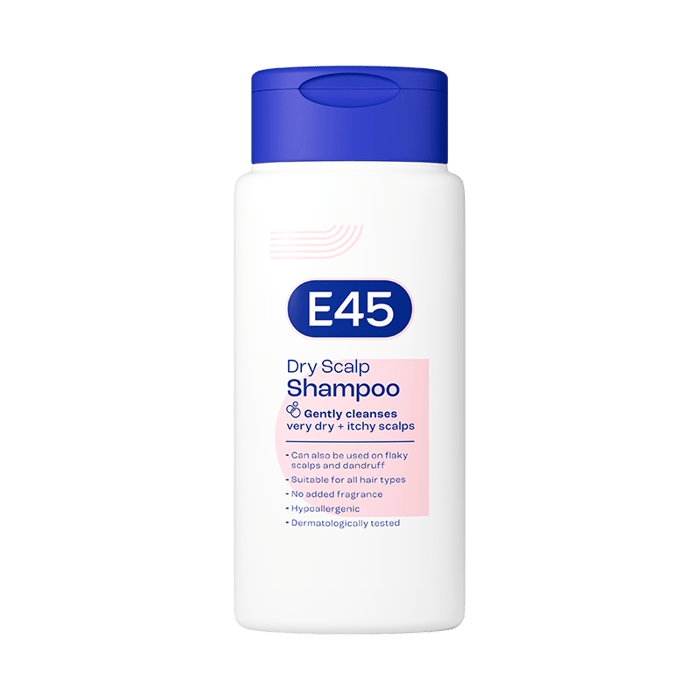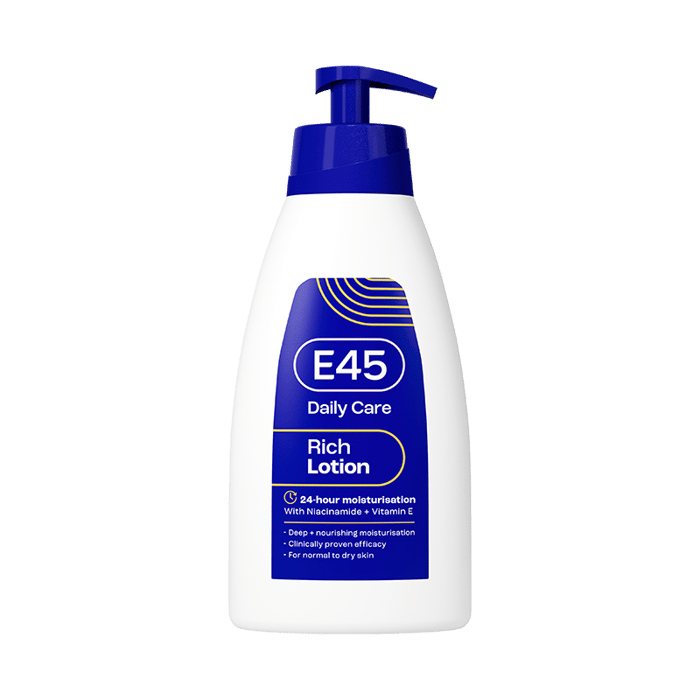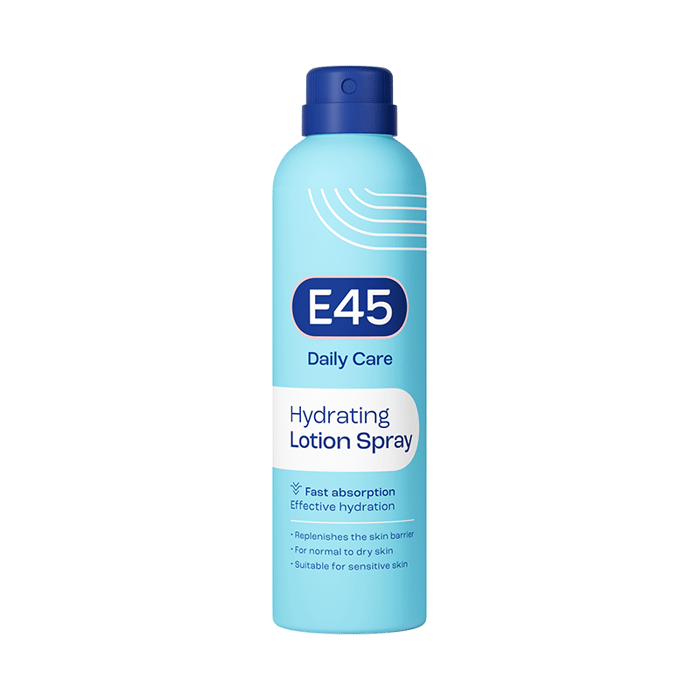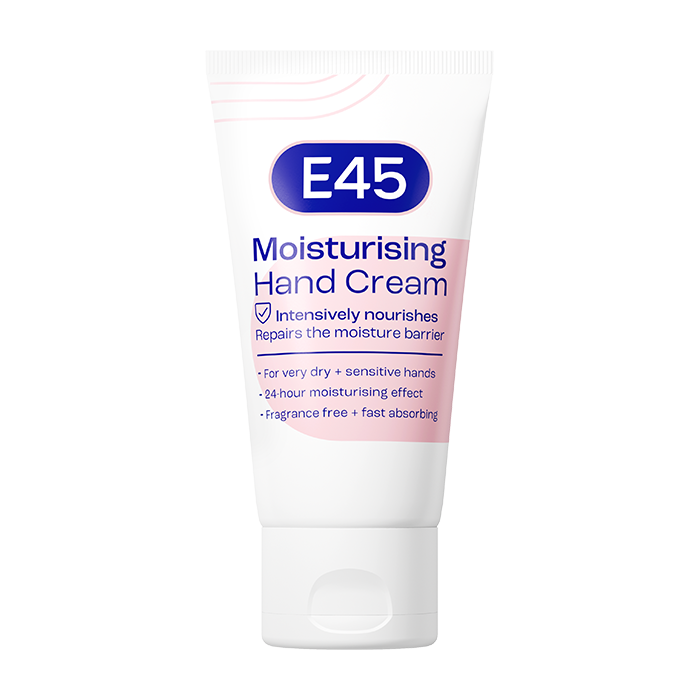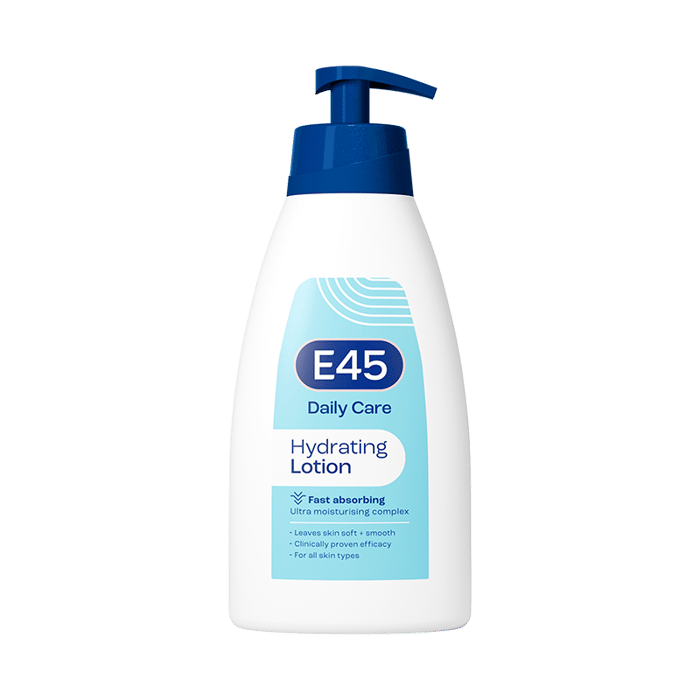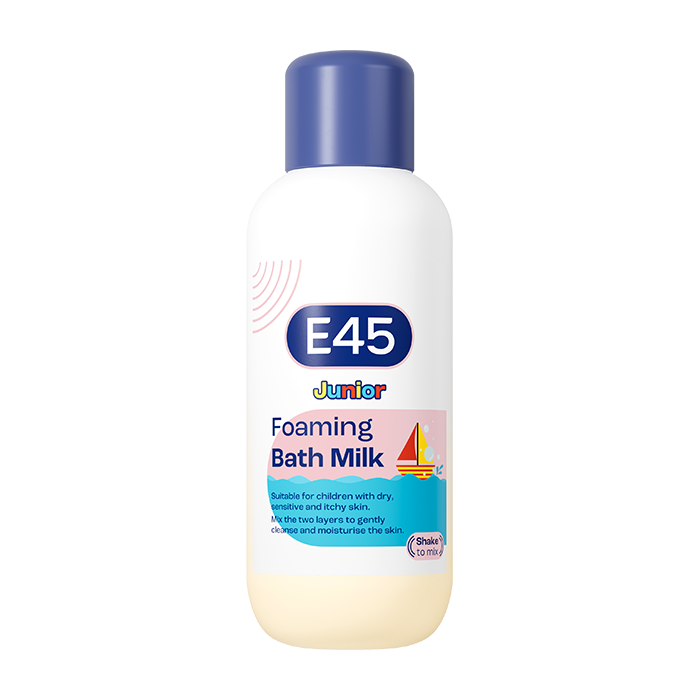Dry skin on the face: Symptoms, causes and care
If you’re dealing with dry skin on the face, you’re not alone. It can feel tight, rough or itchy, and sometimes show up as dry patches on the face that don’t seem to go away. While it might be uncomfortable, there are simple ways to help your skin feel more at ease, starting with understanding what’s causing the dryness and how to gently care for it.
Symptoms of dry skin on the face
Dry skin can show up in different ways, and symptoms often become more noticeable in the colder months or after using certain skincare products. Here are some common signs to look out for:
- Tightness: This uncomfortable feeling is often most noticeable after washing your face and is one of the first signs that your skin needs more moisture.
- Visible flaking or scaling: Dry or flaky patches can vary in size, from barely noticeable to more pronounced areas.
- A rough, uneven texture: When your skin lacks moisture, skin cells can shrink slightly, leading to a bumpy or uneven surface.
- Fine lines: These can appear more easily when your skin is dry.
- Cracks or fissures: In more severe cases, dryness can lead to deeper cracks that may feel sore or even bleed.
- Itching or stinging: Dryness can cause the skin to itch, which may lead to a cycle of scratching that makes irritation worse.
- Redness or irritation: Your skin may look red or feel inflamed, especially if it’s already been scratched or rubbed.
- Dull or matte appearance: Healthy, well-moisturised skin often has a natural glow. When your skin is dry, it can look flat or tired.
Managing dry skin on the face
Not all skin needs the same routine, but most people find their skin improves with a bit of consistency, the right products and ingredients that support hydration. A good routine can help restore the skin’s moisture barrier and reduce the risk of dry patches returning.
A skincare routine for dry skin on the face
- Cleanse once or twice daily using a fragrance-free product. E45 Face Foaming Cleanser is dermatologically tested and designed for dry skin. It gently cleanses without stripping away moisture.
- Moisturise twice a day with a cream that contains ingredients like ceramides, glycerin or urea — such as E45 Face Care Hydrating Moisturiser. It keeps skin hydrated throughout the day and helps protect against drying factors like cold weather.
- Apply SPF 50+ daily to protect your skin from sun damage. E45 Sun Care Sensitive Face Cream SPF 50+ absorbs easily, provides long-lasting hydration and offers high UVA and UVB protection.
- For an extra boost of moisture, especially for dry or sensitive skin, you can add E45 Face Hydrating Serum to your routine.
- Avoid physical exfoliants (like scrubs), which can be too harsh and disrupt the skin barrier.
Topical treatments
If you have particularly dry areas, for example around your eyes and mouth, you might need a bit of targeted care. These types of products may help:
- Emollient-rich moisturisers with ingredients like urea or paraffin, for example, E45 Cream, help soothe, hydrate and protect the skin. It’s also suitable for dry skin on babies.
- Occlusive balms such as E45 Lips and Dry Skin Balm help lock in moisture and protect extremely dry patches.
- Natural oils like coconut or jojoba oil can complement your skin’s natural oils and add an extra layer of nourishment.
If your dry skin is severe or linked to a skin condition like eczema or psoriasis on the face, a healthcare professional might suggest other treatments. Everyone’s skin is different, and sometimes it takes a bit of trial and error, or expert advice, to find what works best for you.
Causes of facial dryness
There’s no single reason for dry skin on the face, it’s often due to a combination of factors. These include your environment, skin type, daily habits, and in some cases, underlying skin conditions or medications. Understanding the possible causes can help you take small steps to protect your skin and prevent dryness from coming back.
External factors: Environmental and lifestyle-related trigger
- Cold, windy weather
- Sun exposure
- Central heating or air conditioning
- Hot baths or showers
- Chlorinated swimming pools
- Overwashing or using soap-based cleansers
- Air pollution or cigarette smoke
Internal factors: Age, hormones and genetics
- Ageing: As we get older, our skin naturally produces less oil and has a harder time holding onto moisture.
- Hormonal changes: Shifts during menopause or pregnancy can impact skin hydration.
- Genetics: Some people are simply more prone to dry or sensitive skin due to their genetics.
Skin conditions and medications
- Skin conditions: Eczema, psoriasis, perioral dermatitis and rosacea are often linked to dry, flaky skin on the face.
- Medications: Diuretics, retinoids or acne treatments may lead to increased dryness (Source).
Different skin types
- Dry skin: Already low in oil, this skin type can struggle to retain moisture and often needs richer creams with ingredients like ceramides or urea.
- Oily or combination skin: Can still develop dry patches, especially when using acne treatments or exfoliants that strip away natural oils.
Sensitive skin: More reactive to environmental triggers and ingredients, making it prone to irritation and dryness. - Acne-prone skin: Often treated with products that reduce oil but may also lead to dryness, flaking or tightness.
Understanding your skin type can help you choose the right moisturisers and avoid products that worsen dryness.
Skincare ingredients that may contribute to dryness
Certain ingredients, even if popular, can sometimes cause dryness, particularly if your skin is already sensitive or irritated.
Try to avoid:
- Alcohol-based products: These can be overly drying, especially in toners or spot treatments.
- Strong exfoliants: Such as scrubs or acids like glycolic or salicylic acid, which may strip moisture if used too often.
Fragrance: Especially synthetic fragrances, which can irritate dry or sensitive skin.
Tips for preventing dryness on the face
Small changes in your daily routine can help reduce the chance of dry patches on the face returning, especially during seasonal shifts. These tips also help keep your skin feeling comfortable and hydrated long term.
Helpful everyday tips:
- Wash your face with lukewarm, not hot, water to protect your skin’s natural oils.
- Use a non-foaming, soap-free cleanser that’s made for dry skin.
- Avoid over-washing – twice a day is usually enough unless you’ve been sweating a lot.
- Pat your skin dry with a soft towel.
- Moisturise straight after washing to lock in hydration. Choose a cream suited to your skin type and climate.
- Avoid alcohol-based toners and fragranced skincare, which can worsen dryness.
- Use SPF daily, even on cloudy days.
Lifestyle adjustments for healthier skin
Skincare isn’t just about what you put on your face – your lifestyle matters too. These small changes can support your skin from the inside out.
- Stay hydrated – Drink enough water each day to help your skin stay moisturised.
- Eat a balanced diet – Include foods rich in omega-3 fats, like salmon, walnuts or flaxseed.
- Use a humidifier – Especially during winter, when dry indoor air can make things worse.
- Manage stress – High stress levels can sometimes trigger flare-ups.
- Check product labels – Avoid skincare or household products with known irritants.
- Wear soft, breathable fabrics – Materials like cotton and silk are gentle on dry or sensitive skin.
Conclusion: Prioritising your skin’s health
Dry skin on the face can be frustrating, but in most cases, it’s manageable with gentle care, the right products and a few thoughtful changes to your routine. If you’ve been wondering how to get rid of dry skin on your face, start by looking at your daily habits and making small, kind choices.
If things don’t improve within a few weeks, or your skin becomes painful or cracked, it might be time to speak with your GP or pharmacist to check whether a skin condition could be involved.
FAQ: Dry skin on the face
What causes dry skin on the face?
Dry skin on the face can be caused by cold weather, central heating, using harsh skincare products, washing too often, or spending time in dry air. Other factors include ageing, hormonal changes and skin conditions like eczema or psoriasis.
How can I treat dry skin on my face at home?
It can help to use a gentle, fragrance-free cleanser, moisturise regularly (especially after washing), and avoid hot water or strong exfoliants. Using an emollient with ingredients like ceramides or urea may also support the skin barrier.
How do I cure dry skin on my face overnight?
Use a nourishing serum followed by a richer cream or balm that can help seal in moisture. Some people also use a small amount of petroleum jelly to help protect, and eventually cure, dry skin overnight.
What skincare ingredients should I avoid if I have dry skin?
If your skin is feeling dry or flaky, it’s a good idea to avoid alcohol-based products, foaming cleansers, harsh scrubs and strong acids like glycolic or salicylic acid, at least until your skin feels more comfortable.
Why do I have dry patches on my face even though I have oily skin?
Even oily or combination skin types can get dry patches, especially if you’re using products that strip natural oils. Overwashing or using acne treatments can sometimes cause this.
How can I get rid of dry flaky skin on my face quickly?
For quick relief, cleanse with lukewarm water, apply a hydrating serum and follow with a thick moisturiser. At night, a balm or occlusive layer (like petroleum jelly) may help lock in moisture.
Is dry facial skin a sign of something more serious?
In many cases, dry skin is temporary and responds well to home care. But if you’re noticing ongoing irritation, cracking, soreness, or it doesn’t improve after a few weeks, it’s worth speaking to a pharmacist or GP.
Can stress cause dry skin on the face?
Stress doesn’t directly cause dry skin, but it may affect the skin’s barrier and trigger flare-ups in conditions like eczema or rosacea, which can lead to dryness.
How do I stop dry skin on my face during winter?
Moisturising more frequently, avoiding hot water, using a humidifier and switching to richer emollients during colder months can be helpful.
Can diet or hydration affect dry skin?
Yes – drinking water and eating foods rich in essential fatty acids (like nuts, seeds, and oily fish) may support your skin’s natural moisture levels.
What’s the best time to apply moisturiser for dry skin on the face?
Right after cleansing, while the skin is still slightly damp. This helps lock in moisture and can make a noticeable difference over time.
Sources
yourhealth.leicestershospitals.nhs.uk/library/musculoskeletal-specialist-surgery-mss/ophthalmology/2360-treating-eczema-around-your-eyes-periocular-dermatitis/
my.clevelandclinic.org/health/diseases/16940-dry-skin
www.nhs.uk/conditions/contact-dermatitis/
www.nhs.uk/conditions/atopic-eczema/
www.nhs.uk/conditions/emollients/
www.nhs.uk/conditions/contact-dermatitis/
www.aad.org/public/diseases/a-z/dry-skin-causes
eczema.org/information-and-advice/treatments-for-eczema/emollients/
www.aad.org/public/diseases/a-z/dry-skin-causes
www.aad.org/public/everyday-care/skin-care-basics/dry/pick-moisturizer

